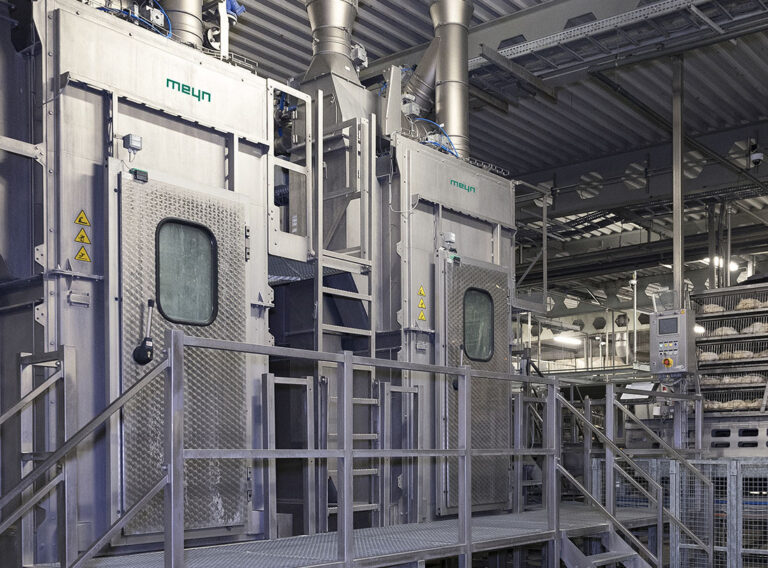The CO2 shortage earlier this year highlighted the issue of gas stunning and how birds are slaughtered in processing plants.
It drew attention to the fact the use of gas for stunning has become increasingly popular for both welfare and practical reasons. When birds are rendered unconscious in crates using gas, it is far easier for workers to handle them prior to the final dispatch.
Passing the birds through an electrically charged water bath is still practiced in some processing plants, but it’s becoming increasingly seen as an inferior option.
Indeed when the gas shortage struck, the general manager of one of the UK’s 20 large poultry processing plants told Poultry Business there had been chaotic scenes when they were forced to switch back to electrical stunning.
“We’ve got chickens trying to escape everywhere and workers who aren’t used to handling them,” he said in June. “It’s taking a lot longer to get everything through, but we’ve got no choice.”
Despite this unprecedented hiccup, gas is increasingly the first option for new and refurbished plants.
There are several gas stunning systems on the market. Marel Poultry offers multiphase controlled atmosphere stunning (CAS) technology. The first system was commissioned in 1996. Since then the CAS system has been installed throughout the European Union and in markets further afield such as the USA and Australia.
The multiphase CAS concept has been optimised by arranging the system into a single straight horizontal line. The fully automatic stunning system programmed from a touch screen adjacent to the system. Changing from one regime to another is quick and easy. Exact concentrations around the head of each broiler are continuously monitored and displayed.
The system follows a Stork GP or an ATLAS live bird handling system. Broilers on the belt or in their SmartStack trays are transferred smoothly to the CAS SmoothFlow system. These straight movements without sudden transitions makes for one of the most humane processes in the industry, Marel Poultry says.
This was the system chosen by 2 Sisters when it upgraded its Scunthorpe plant to become fully automated in August 2016. Costing £45 million, the firm said Scunthorpe would be “the world’s most advanced poultry processing plant”.
The company installed new robotic cells at the plant to create “a fully automated process” and increased the capacity of the site by a third to 2.4 million birds a week.
Improved animal welfare was a priority when Meyn developed its new Multistage CO2 stunning system, a co-development with Praxair. Birds remain in the drawer or container during stunning, so that handling and transport of active birds is completely eliminated. This approach greatly reduces handling stress and lowers the risk of injuring birds during the transportation process.
Closed cabinet construction allows for CO2 concentration to be managed precisely at every stage of the process, resulting in a more humane stun and greatly improved end product quality.
Meyn said its CO2 stunning system for poultry offers the twin benefits of improved animal welfare and enhanced product quality.
Case study: Traditional Norfolk Poultry has recently invested in a new gas stunning system.
TNP processes around 85,000 speciality free range chickens per week and during the Christmas period it also processes around 300,000 speciality free range turkeys. TNP as a total business employs in the region of 200 colleagues.
During 2016, it doubled the size of its factory and invested in new machinery including Ulma packing machines, Marel scales, Hellenic, Loma and Bayle plucking machine, and Meyn Gas stunning.
The Meyn Gas stunning system, installed in November 2016, was done after careful research and bearing in mind a strong ethos for animal welfare. The investment was over £1 million.
TNP has been impressed with its multi-stage C02 system, which it says has delivered efficiencies such as: reduced maturation time; higher yield; no haemorrhaging; reduced wing damage; consistent high quality.
The system is such that the birds are not doubled handled, the modules that they arrive in are transported direct to the chamber, birds are allowed to sleep and die gradually without stress. This is a six minute cycle with unconscious occurring well within three minutes. “This system exceeds a higher welfare standards requirement and provides a good working environment for our colleagues,” the poultry firm says.


